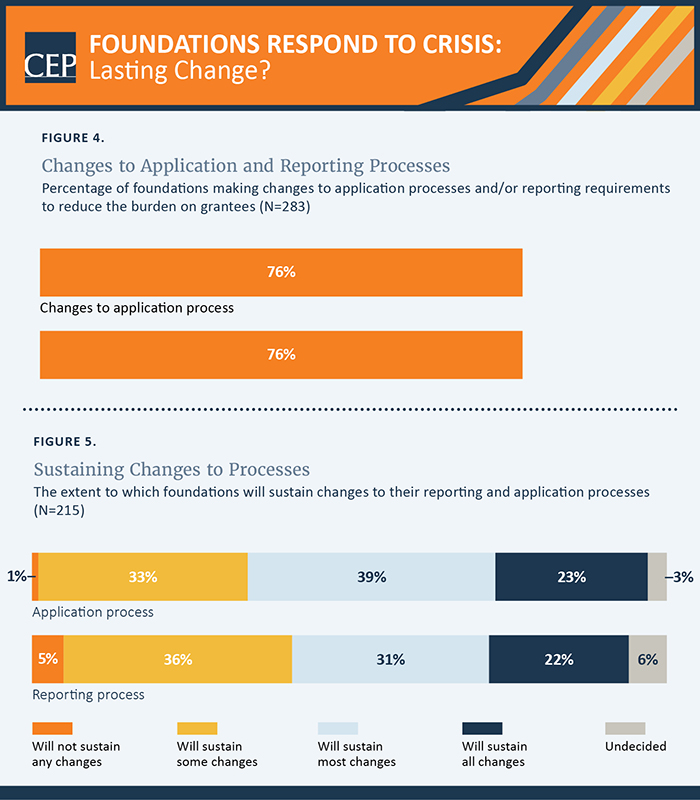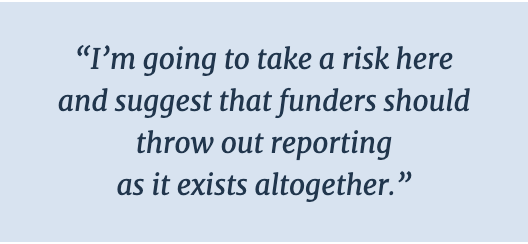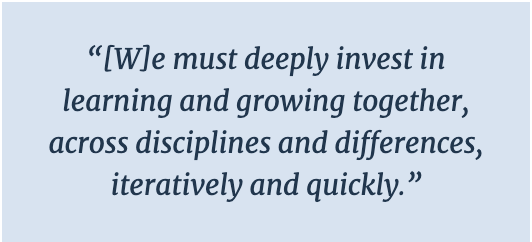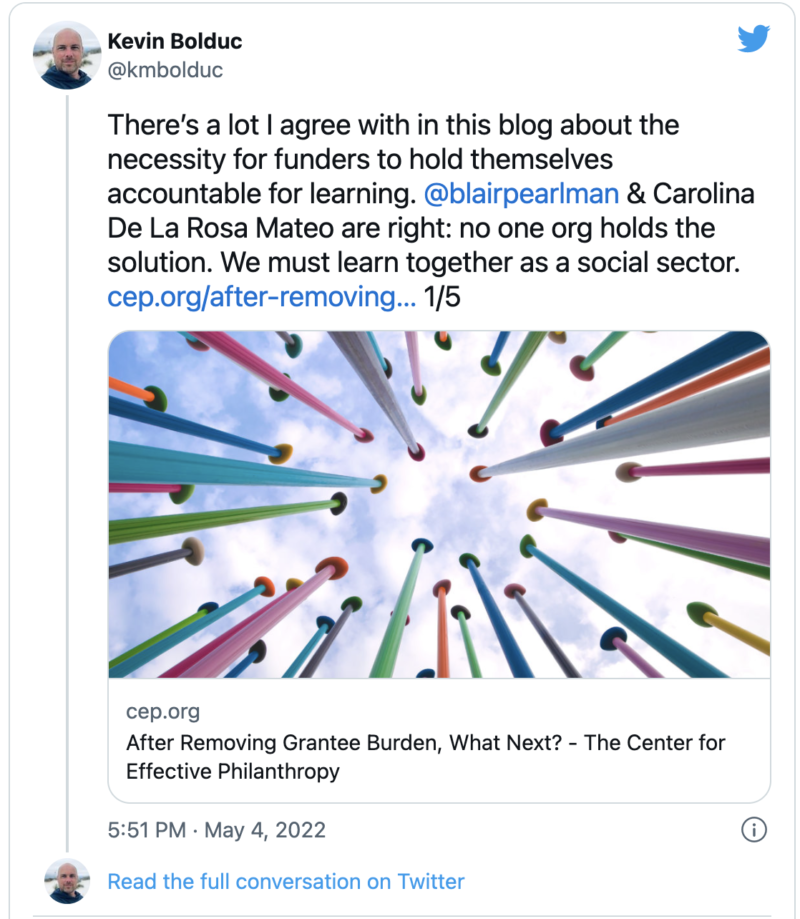
This opening line from Caroline Fiennes’ post on the Center for Effective Philanthropy (CEP) blog half a decade ago still rings true today. Debates over what makes a funder’s reporting and evaluation process useful, how to ease burdens on grantees, and even whether to do away with certain reporting requirements entirely are ongoing in the philanthropic sector, particularly in light of recent significant shifts in foundation practice since early 2020. In this special edition of the Effective Matters newsletter, we offer perspectives on the issue, examples of reporting practices that have been successful, as well as resources for funders.
Research in Focus
In response to the global pandemic and a national reckoning on race following the murder of George Floyd, many foundations began to shift practices to reduce burdens on grantees and increase focus on racial equity. CEP’s research report, Foundations Respond to Crisis: Lasting Change?, released in late 2021, revealed that virtually all foundation leaders say their foundations are working differently now than in early 2020, including streamlining processes to reduce burdens on grantees. Changes to reporting requirements figures among these changes, with 76 percent of foundations making changes to reporting requirements and a significant majority of foundation leaders saying they intend to sustain some, most, or all of these changes.

Perspectives on Reporting

CEP’s Kevin Bolduc lays out an argument for boldly reimagining what reporting could look like in a piece for the CEP blog last fall. Bringing insight from years of Grantee Perception Reports to bear, he makes the case that reporting is successful only when it leads to real engagement between funder and grantee, rather than remaining a burdensome task eating away at a grantee’s limited time and resources.

Responding to calls for drastically reduced reporting requirements, Meredith Blair Pearlman, evaluation and learning director at the David and Lucile Packard Foundation, and Carolina De La Rosa Mateo, research coordinator at HACER (Hispanic Advocacy and Community Empowerment Through Research), argue for the value of reporting for learning. They make the case that only with a more collective, transparent, and well-supported approach to learning through reporting across the sector can we achieve transformational changes. Read the post here.
CONTINUE THE CONVERSATION: For more on this discussion, read Kevin Bolduc’s recent thread on Twitter, in which he calls for both collective, equity centered learning and an honest appraisal of the value of reporting now.
CONTINUE THE CONVERSATION: For more on this discussion, read Kevin Bolduc’s recent thread on Twitter, in which he calls for both collective, equity centered learning and an honest appraisal of the value of reporting now.

Reporting in Practice
In a case study released in 2016, Giving Evidence shares the example of the Inter-American Foundation (IAF), whom they call a ‘positive outlier’ when it comes to reporting. By 2015, IAF had twice received the best rating ever seen for helpfulness of its reporting process on CEP’s Grantee Perception Report (rating extremely well on other measures of the GPR, too). The study examines IAF’s approach to reporting, what makes it work so well for grantees, and what both IAF and other funders can learn from this success story. Find the case study here.
“Three quarters of the foundation leaders that responded to our survey in 2021 indicated having made changes to their reporting requirements to reduce the burden on grantees,” Satia Marotta noted in a post on the CEP blog. Research CEP conducted in 2021 to assess how foundations were shifting practices to ease burdens on grantees in response to the pandemic and national reckoning on race reveal that there was indeed a shift to reduce reporting requirements — a change Marotta expresses hope will continue, as foundations move toward trust in nonprofit leaders.
Additional Resources
Grantees Report Back: Helpful Reporting and Evaluation Processes

